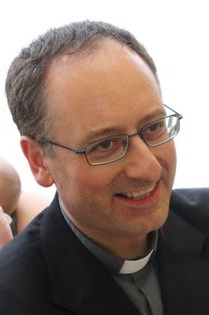The Reverend Dr. Antonio Spadaro | |
|---|---|
 | |
| Born | 6 July 1966 |
| Education | University of Messina Pontifical Gregorian University |
| Occupations | Official of the Holy See and Vatican City State |
| Organization | Society of Jesus |
| Title | Editor of La Civiltà Cattolica |
| Term | 1 October 2011 — present |
| Predecessor | Gianpaolo Salvini |
| Successor | incumbent |
Antonio Spadaro, SJ (born 6 July 1966) is an Italian Jesuit priest, journalist and writer.

